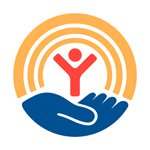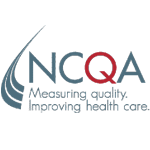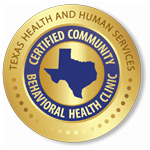Frequently Asked Questions
Will Narcan work on someone who has overdosed on fentanyl?
Yes, Narcan can reverse fentanyl overdoses, but fentanyl is much more potent than other opioids, so multiple doses may be required. Since fentanyl is increasingly found in the street drug supply (sometimes without the user’s knowledge), having Narcan readily available is crucial for anyone at risk of opioid exposure.
Will MAT interfere with my ability to work or drive?
When properly prescribed and monitored, MAT medications should not impair your ability to work, drive, or function normally. In fact, most patients find that MAT helps them return to normal daily activities by eliminating withdrawal symptoms and reducing cravings for opioids.
Why is fentanyl more dangerous than other opioids?
Fentanyl is 50-100 times more potent than morphine, meaning even tiny amounts can cause overdose and death. It’s often mixed into other street drugs without users’ knowledge, including fake prescription pills, heroin, and cocaine. The margin between a dose that produces euphoria and a lethal dose is extremely narrow with fentanyl.
Who is a veteran?
The term veteran is used to describe a person who served in the active military, naval, or air service and who was discharged or released under conditions other than dishonorable.
The Steven A. Cohen Military Family Clinic at Metrocare serves all post-9/11 veterans. This includes any person who has served in the U.S. Armed Services (including the National Guard and Reserves) regardless of role, discharge status, or combat experience.
Who is a veteran peer?
A veteran with a shared experience who is willing to help others, a veteran who suffered hardship as a result of their military experience, past trauma, or mental health issues but has learned successful coping strategies, a veteran who wants to help others on their recovery journey, and/or a veteran who is willing to listen.
Where can I find resources for members of the military community?
A variety of options exist for locating resources, including Veterans Affairs and Department of Defense. Military OneSource and the Texas Veterans Commission provide information on benefits and numerous specialty programs. For personalized help finding specific resources, reach out to MVPN or the Cohen Clinic.
What’s the difference between opioid dependence, tolerance, and addiction?
Physical dependence means your body needs the drug to function normally and you experience withdrawal when stopping. Tolerance means you need increasing amounts to achieve the same effect. Addiction involves compulsive use despite harmful consequences, loss of control, and continued use despite wanting to stop. Someone can have dependence without addiction.
What’s the difference between a psychologist and a psychiatrist?
Psychologists provide clinical services in the areas of assessment, diagnostics, and treatment (including therapy) through observation, interview, and administration of psychological tests. Psychiatrists are medical doctors who can prescribe medication and offer therapy.
What types of counseling are included with MAT at Metrocare?
Our MAT program provides a range of supportive services designed to meet you where you are in recovery. This includes individual counseling, group therapy sessions, trauma-informed care, relapse prevention, medical model groups, and certified peer support. These options give you a safe space to build skills, process experiences, and connect with others who understand your journey.
What treatment is available to veterans, service members, and military families struggling with mental health challenges?
At Metrocare, we are proud to offer two programs dedicated to serving our veteran and military community, including family members. The Military Veteran Peer Network, or MVPN, offers peer support, training, and connection to resources. The Steven A. Cohen Military Family Clinic at Metrocare offers targeted, evidence-based mental health treatment for individuals, couples, families, and groups. Cohen Clinic clients may also be seen for medication management or case management, including referrals to needed resources such as financial assistance, employment, education, and benefits. Learn more about the care available at our Cohen Clinic here.
What should I expect during my first MAT appointment at Metrocare?
During your initial assessment, our medical team will review your substance use history, conduct a physical examination, and discuss your treatment goals. We’ll develop a personalized recovery plan that may include medication, individual counseling, group therapy, and peer support services.
What should I do if my child shows signs of a mental health disorder?
Consult with a healthcare professional for an evaluation. Early intervention is crucial. You might start with your child’s pediatrician or a child psychologist or psychiatrist.
What role does naloxone (Narcan) play alongside MAT treatment?
While MAT significantly reduces overdose risk, we still provide naloxone training and supplies to all patients and their families. Naloxone can reverse an opioid overdose in emergency situations, providing an additional safety net during your recovery journey.
What role does genetics play in mental health?
Genetics can play a role in the likelihood of developing certain mental health conditions, but it’s usually just one of many factors.
What role does alcohol or substance use play in adult mental health?
Substance abuse can exacerbate existing mental health problems and lead to the development of new issues. Seeking help for substance abuse is key to overall mental health.
What role do parents play in a child’s mental health?
Parents are crucial in providing emotional support, understanding, and guidance. They can model healthy coping skills, provide a stable environment, and seek professional help when needed. If help is needed, parents should directly be involved and engaged in the development of a treatment plan.
What mental health resources are available for children and teens?
Resources include school counselors, child psychologists or psychiatrists, community mental health centers, and online resources specifically tailored for young people’s mental health.
What mental health issues are commonly experienced in the military community?
Veterans can face various mental health challenges, including anxiety, depression, and post-traumatic stress disorder (PTSD).
What medications are used in MAT for fentanyl addiction?
MAT medications include methadone, buprenorphine (Suboxone), and naltrexone. These medications are particularly effective for fentanyl addiction because they can address the intense cravings and withdrawal symptoms associated with this potent synthetic opioid. Your doctor will determine the best medication based on your specific needs.
What is therapy like?
Therapy involves talking with a trained professional about your thoughts, feelings, and behaviors. Techniques and approaches can vary.
What is the impact of financial stress on mental health?
Financial stress can lead to anxiety, depression, and feelings of low self-worth. It’s important to seek financial counseling if needed and practice stress-reduction techniques.
What is the difference between intellectual disability and developmental disability?
Intellectual disability primarily refers to limitations in cognitive functioning and skills. Developmental disabilities, a broader category, can include intellectual disabilities as well as neurological, sensory and physical impairments.
What is PTSD?
PTSD is a real disorder that develops when a person has experienced or witnessed a scary, shocking, terrifying, or dangerous event. These stressful or traumatic events usually involve a situation where someone’s life has been threatened or severe injury has occurred.
What is mental health?
Mental health refers to our cognitive, behavioral, and emotional well-being. It’s about how we think, feel, and behave.
What is Medication-Assisted Treatment (MAT) for opioid addiction?
Medication-Assisted Treatment (MAT) is an evidence-based approach that combines FDA-approved medications with counseling and behavioral therapies to treat opioid use disorder. MAT helps reduce cravings, prevent withdrawal symptoms, and block the euphoric effects of opioids like heroin, fentanyl, and prescription painkillers.
What happens if I relapse while in MAT treatment?
Relapse is often part of the recovery journey, and our team is prepared to support you through any setbacks. We’ll work with you to adjust your treatment plan, which may include medication adjustments, increased counseling frequency, or additional support services to help prevent future overdose risks.
What educational options are available for children with IDD?
Children with IDD may access special education services, inclusive classroom settings, or specialized schools depending on their needs.
What does veteran peer support look like?
Our MVPN peer service coordinators provide services including direct peer-to-peer support, facilitating peer groups, training on suicide prevention and military cultural competency, coordination of mental health first aid, and warm-handoffs to local resources based on the individual needs of the veteran and family.
What causes mental health problems in children and teens?
Factors include genetic predisposition, environmental influences like exposure to violence, family dynamics, bullying, trauma, substance use, and chronic medical conditions. Adolescents face additional stress from hormonal changes and social pressures.
What causes mental health issues?
Causes can include biological factors (like genetics or brain chemistry), life experiences (such as trauma or abuse), stress, and family history of mental health problems.
What are the signs that someone is developing an opioid addiction?
Signs of opioid addiction include taking larger doses than prescribed, doctor shopping for multiple prescriptions, inability to control opioid use, continued use despite negative consequences, withdrawal symptoms when stopping, and neglecting responsibilities. Physical signs may include constricted pupils, drowsiness, slurred speech, and changes in sleep patterns.
What are the signs of substance abuse in teens?
Signs include changes in friends, declining grades, secretive behavior, lack of participating in pleasurable activities, and changes in eating and sleeping habits.
What are the signs of midlife crisis and its impact on mental health?
Signs include questioning life choices, feeling trapped in a lifestyle, and making impulsive decisions. It can lead to depression and anxiety, and seeking professional guidance can help.
What are the signs of burnout, and how is it treated?
Burnout signs include chronic fatigue, cynicism about work, feelings of ineffectiveness, and reduced performance. Treatment involves stress management techniques, lifestyle changes, and sometimes professional counseling.
What are the signs of a mental health emergency?
Signs include threats of harm to oneself or others, severe disorientation or confusion, and uncontrollable or extremely erratic behaviors.
What are the most common mental health disorders impacting children and adolescents?
Eating disorder, Attention-Deficit Hyperactivity Disorder (ADHD), Depression, Anxiety, Obsessive Compulsive Disorder (OCD), and Schizophrenia.
What are the effects of bullying on mental health?
Bullying can lead to anxiety, depression, low self-esteem, and in severe cases, suicidal thoughts. It’s important to address bullying immediately and provide support to the affected child.
What are the causes of IDD?
Causes can include genetic factors, complications during pregnancy or birth, and environmental factors such as exposure to toxins.
What are some common types of IDD?
Common types include Down syndrome, autism spectrum disorders, cerebral palsy, and Fragile X syndrome.
What are signs of PTSD?
Symptoms of PTSD may develop after a traumatic event such as trouble sleeping, feeling on edge, or reliving painful memories. While most people gradually improve, some continue to have persistent symptoms that disrupt their lives and well-being. In some cases, these symptoms develop into PTSD. PTSD can significantly affect every part of a person’s life, disrupting relationships, work, school, and overall well-being. However, those living with PTSD don’t have to endure it forever
What are intellectual and developmental disabilities (IDD)?
An intellectual or developmental disability, also called IDD, includes many severe, chronic conditions that are due to mental and/or physical impairments. IDD can begin at any time, up to 22 years of age.
What are effective ways to manage anxiety in adulthood?
Techniques include cognitive-behavioral therapy, mindfulness practices, regular exercise, adequate sleep, and sometimes medication. It’s also helpful to identify and address anxiety triggers.
What are common mental health disorders?
Common mental health disorders include depression, anxiety disorders, schizophrenia, bipolar disorder, and eating disorders.
Is medication always necessary for treating mental health issues?
Not always. Some conditions may require medication, but others can be effectively managed with psychotherapy, lifestyle changes, and support.
Is MAT effective for treating prescription opioid addiction?
Yes, MAT is highly effective for prescription opioid addiction, including addiction to medications like oxycodone, hydrocodone, morphine, and fentanyl patches. The same medications and counseling approaches used for heroin addiction work effectively for prescription opioid use disorders.
Is it true that MAT just replaces one addiction with another?
This is a common myth. MAT medications are prescribed in controlled doses to stabilize brain chemistry without producing euphoria. Unlike illegal opioids, MAT medications allow you to function normally and focus on recovery without the cycles of intoxication and withdrawal.
How quickly can I start MAT after an overdose?
You can typically begin MAT within 24-48 hours after being medically cleared from an overdose. Early intervention with MAT is crucial, as the period immediately following an overdose represents a high-risk time for another potentially fatal overdose event.
How quickly can a veteran or family member receive mental health care?
We prioritize timely access to mental health care. To reduce barriers to care, we offer evening appointments and telehealth.
The Veterans Crisis Line connects veterans in crisis and their families and friends with qualified, caring Department of Veterans Affairs responders through a confidential toll-free hotline, online chat, or text. Veterans and their loved ones can dial 988 and Press 1. You can also visit www.veteranscrisisline.net
How many times can I use Narcan during a single overdose emergency?
You can use multiple doses of Narcan if the person doesn’t respond to the first dose or if they stop breathing again. If there’s no response after 2-3 minutes, administer a second dose. With potent opioids like fentanyl, multiple Narcan doses may be needed. Always call 911 immediately, even if Narcan appears to work.
How long does MAT treatment typically last?
Research shows that patients on MAT for at least 1-2 years have the greatest rates of long-term success. There is currently no evidence to support benefits from stopping MAT after a short period. Treatment duration is individualized based on your recovery progress and personal circumstances.
How does substance abuse in teens affect mental health?
Substance abuse can exacerbate mental health issues and lead to the development of new ones.
How does puberty affect mental health in teens?
Hormonal changes during puberty can contribute to mood swings and emotional sensitivity. This period also comes with increased stress from social and academic pressures, which can affect mental health.
How does parenting affect mental health?
Parenting can be both rewarding and stressful. It can lead to anxiety, depression, and exhaustion, especially without adequate support. Balancing parenting responsibilities with self-care is vital.
How does Narcan work to reverse an opioid overdose?
Narcan (naloxone) works by blocking opioid receptors in the brain, rapidly reversing the life-threatening effects of an opioid overdose. It can restore normal breathing and consciousness within 2-3 minutes when someone has overdosed on heroin, fentanyl, prescription painkillers, or other opioids. Narcan is a temporary antidote that lasts 30-90 minutes.
How does mental health change as we age into adulthood?
Adulthood brings different challenges, like work stress, family responsibilities, and aging. These can affect mental health, leading to conditions like anxiety, depression, or age-related cognitive changes.
How does MAT help prevent opioid overdose deaths?
MAT significantly reduces the risk of fatal overdose by stabilizing brain chemistry and reducing cravings for opioids. Studies show that MAT can reduce overdose deaths by 38-59%. The medications used in MAT help prevent the dangerous cycle of withdrawal and relapse that often leads to overdose situations.
How does MAT differ from opioid detox programs?
While detox helps you safely withdraw from opioids, MAT provides ongoing treatment that addresses the underlying brain changes caused by addiction. MAT combines medication with counseling for long-term recovery, whereas detox alone has high relapse and overdose rates.
How does IDD affect an individual’s daily life?
Effects vary widely but can include challenges with learning, self-care, mobility, communication, and social skills.
How do sleep patterns affect mental health in teens?
Inadequate sleep can lead to mood swings, decreased cognitive function, and increased vulnerability to mental health disorders like depression and anxiety.
How do prescription opioids lead to street drug use like heroin or fentanyl?
Many people develop addiction to prescription opioids after legitimate medical use. When prescriptions become unavailable or too expensive, some turn to cheaper street alternatives like heroin or fentanyl. This progression is common because street opioids provide similar effects but are often more accessible and less expensive than prescription medications.
How do physical health problems impact mental health in adults?
Chronic physical health problems can increase the risk of mental health issues like depression and anxiety. Managing the physical condition and seeking mental health support is important.
How do I talk to my child about mental health?
Use age-appropriate language and basic conversation starters, be open and honest, encourage them to share their feelings, and listen without judgment. Make sure they understand that mental health is important and it’s okay to ask for help.
How do I know if I need help with my mental health?
If you’re experiencing persistent changes in mood, behavior, or thoughts that are impacting your daily life, it may be time to seek help.
How do I get started with MAT services at Metrocare?
To begin MAT treatment, contact our intake team at IOPSOPReferrals@metrocareservices.org or call 469-705-9170. You can expect to receive a call back the next business day to schedule your initial assessment. Bring a photo ID, proof of income, proof of residence, and insurance information (if applicable) to your first appointment.
How do I find a mental health professional?
You can start by consulting your primary care doctor, checking with your insurance provider, or looking for local mental health clinics like Metrocare.
How common is depression in adults, and how is it treated?
Depression is common and can be treated with a combination of psychotherapy, medication, lifestyle changes, and support groups. Early intervention improves outcomes.
How can therapy be tailored for children and teens?
Therapies for young people often include more engaging and age-appropriate methods like play therapy, art therapy, and family therapy, alongside traditional talk therapies adjusted to their developmental level. It is important to be engaged in the development of the treatment plan and communicate your preferences to your mental health provider.
How can social isolation impact mental health in adults?
Social isolation can lead to increased feelings of loneliness, depression, and anxiety. Maintaining social connections and participating in community activities are important for mental well-being.
How can schools support children and teens with mental health issues?
Schools can provide support through counseling services, educational programs about mental health, accommodating learning needs, and creating a supportive, bully-free environment. School can also include the child’s mental health provider in meetings such as ARD (Admission Review and Dismissal), IEP (Individualized education plan), and team meetings. The school can also collaborate with you and the mental health provider on your child’s mental health services.
How can I support someone with mental health issues?
Offer empathy, listen without judgment, educate yourself about their condition, provide information on resources, show continued support and understanding, and encourage them to seek professional help.
How can I support a veteran or active service member in my life?
Service members and their families relocate much more frequently than civilian families. You can help ease their transition by offering a warm welcome, practical assistance, and asking thoughtful questions about their experience. Simple gestures like sharing local tips or helping out during a move can make a big difference.
Many people like to thank veterans and service members for their service. While it is a thoughtful gesture, it can make some veterans feel uncomfortable. Instead, you can ask meaningful questions like: Which branch did you serve in? What was your job while serving? Where were you stationed?
How can I support a friend or family member struggling with mental health?
Offer non-judgmental listening, encourage them to seek professional help, provide information on resources, and show continued support and understanding.
How can I recognize signs of mental health issues in my child?
Look for changes in behavior, such as withdrawal from social activities, drastic changes in academic performance, significant weight change, sleep disturbances, lack of desire to participate in meaningful activities that they would normally do, or increased irritability and aggression. Young children might revert to behaviors they had outgrown, like bedwetting.
How can I maintain mental health in a high-pressure job?
Prioritize work-life balance, take breaks, practice stress-reduction techniques like mindfulness or exercise, seek support from colleagues or a therapist, develop a good community and support system, and ensure adequate rest and leisure time.
How can I maintain good mental health?
Regular exercise, a balanced diet, adequate sleep, managing stress, and staying connected with others are key to maintaining good mental health.
How can I improve and maintain good mental health?
Regular exercise, a balanced diet, adequate sleep, managing stress, and staying connected with others can significantly impact mental health and are key to maintaining good mental health.
How can I help my teen manage stress?
Encourage healthy habits like regular exercise, adequate sleep, and balanced nutrition. Teach and model good stress management techniques, like mindfulness or time management skills, and ensure they have time for relaxation and social activities.
How can families support a child with IDD?
Families can support children by accessing early intervention services, providing a supportive and nurturing environment, and seeking educational and therapeutic resources.
How can families of veterans and service members be supported?
At Metrocare, veteran and military family members are eligible for the same support through the Military Veteran Peer Network and the Cohen Clinic. We offer inclusive definitions of family and veteran.
How are IDD diagnosed?
Diagnosis typically involves a combination of assessments, including psychological testing, developmental monitoring, and medical evaluations to assess cognitive and physical abilities.
Does MAT work for people addicted to street fentanyl?
Yes, MAT is effective for street fentanyl addiction. Because street fentanyl is extremely potent and often mixed with other substances, MAT provides crucial stabilization. The medications used in MAT can effectively manage withdrawal symptoms and cravings associated with fentanyl use.
Does insurance cover MAT for opioid addiction treatment?
Most insurance plans, including Medicaid and Medicare, cover MAT services. Metrocare also provides treatment for uninsured individuals. Our admissions team can help verify your benefits and explore payment options to ensure you can access the care you need.
Can work-related stress lead to long-term mental health issues?
Yes, chronic work-related stress can contribute to mental health problems like anxiety, depression, and burnout. It’s important to manage stress and seek support when needed.
Can stress cause mental health problems?
Chronic stress can lead to or exacerbate mental health problems like depression and anxiety.
Can someone become addicted to opioids after just one use?
While physical dependence typically develops after several days or weeks of regular use, some people may experience strong cravings or psychological attachment after just one use, especially with potent opioids like fentanyl. Factors like genetics, mental health conditions, and trauma history can increase vulnerability to rapid addiction development.
Can social media affect my child’s mental health?
Yes, excessive social media use can lead to issues like cyberbullying, social anxiety, depression, and unrealistic comparisons. It’s important to monitor usage and discuss responsible online behaviors.
Can relationship problems cause mental health issues?
Yes, issues in personal relationships can lead to mental health problems like depression and anxiety. Counseling, either individually or as a couple, can be beneficial.
Can poor mental health affect physical health?
Yes, mental and physical wellbeing are connected. Poor mental health can impact physical health, leading to an increased risk of some physical health conditions.
Can Narcan cause withdrawal symptoms, and is it dangerous to use?
Narcan can trigger immediate withdrawal symptoms in someone who is physically dependent on opioids, but it is not dangerous to use. Withdrawal symptoms are temporary and much safer than a potentially fatal overdose. Narcan has no effect on people who haven’t used opioids, so it’s safe to administer if you’re unsure whether someone has overdosed.
Can mental health issues be cured?
While some mental health issues can be fully cured, others are more about managing symptoms. Treatment effectiveness varies per individual and condition.
Can MAT help with withdrawal symptoms from fentanyl?
Yes, MAT is specifically designed to alleviate withdrawal symptoms from all opioids, including fentanyl. The medications used in MAT can effectively manage the severe withdrawal symptoms associated with fentanyl cessation, making early recovery more comfortable and sustainable.
Can MAT help someone who has overdosed multiple times?
Absolutely. MAT is especially beneficial for individuals with a history of overdoses. The treatment helps stabilize your system and reduces the likelihood of future overdose events. Even after multiple overdoses, MAT can be an effective path to recovery and significantly improve your chances of long-term sobriety.
Can MAT help me if I’m using multiple substances including opioids?
Yes, our MAT program addresses co-occurring substance use disorders. We provide comprehensive treatment for individuals using opioids along with alcohol, methamphetamines, or other substances. Our integrated approach addresses all aspects of your substance use.
Can major life changes trigger mental health issues in adults?
Yes, life changes like divorce, job loss, or bereavement can trigger mental health issues. Support through therapy, support groups, and strong social networks is crucial.
Can lifestyle changes impact mental health?
Yes, lifestyle factors like exercise, diet, sleep, and social connections can significantly impact mental health.
Can learning disabilities affect mental health?
Yes, children with learning disabilities often experience frustration, low self-esteem, and social difficulties, which can impact their mental health. Providing appropriate support and accommodations is key.
Can IDD be cured?
While there is no cure for most types of IDD, early intervention and ongoing support can significantly improve functioning and quality of life.
Can I use VA benefits to pay for my care?
Cost will never be a barrier to care at the Steven A. Cohen Military Family Clinic at Metrocare or MVPN. The Cohen Clinic accepts all major insurances, including Community Care Network (TriWest) and Tricare. We will work with clients on a case-by-case basis to ensure that any barriers to care are addressed. For those with no insurance, care may be available at no cost. Please reach out to our Office Manager for any specific questions.
Can I take MAT medications if I’m pregnant and struggling with opioid addiction?
Yes, MAT is considered the standard of care for pregnant women with opioid use disorder. Certain MAT medications are safe during pregnancy and can protect both mother and baby from the dangers of untreated opioid addiction, including overdose and withdrawal complications. Babies, however, may still be born with exposure to the medication, such as buprenorphine, in their system. It is important to talk to your doctor or healthcare team as soon as you know you are pregnant to determine the safest treatment plan for you and your baby.
Can I get Narcan without a prescription, and does insurance cover it?
Yes, Narcan is available without a prescription at most pharmacies in Texas. Many insurance plans cover naloxone, and some pharmacies offer it free through community programs. Metrocare also provides free Narcan training and supplies to MAT patients and their families as part of our comprehensive overdose prevention services.
Can children have mental health issues?
Yes, children can experience mental health issues. Common signs include changes in school performance, excessive worry or anxiety, hyperactivity, and frequent nightmares.
Are there employment opportunities for adults with IDD?
Yes, many adults with IDD can work and are supported through vocational training programs, supported employment, and workplace accommodations.
Are mental health issues common?
Yes, mental health issues are very common. In any given year, about 1 in 5 adults experience mental illness. Additionally, 1 in 5 children ages 13-18 have, or will have, a serious mental illness.
Are mental health issues common in veterans?
At some point in their lives, 7 out of every 100 Veterans (7%) will experience post-traumatic stress disorder (PTSD), compared to 6 out of every 100 adults (6%) in the general population. PTSD is also more prevalent among female Veterans, affecting 13 out of every 100 (13%), compared to 6 out of every 100 (6%) male Veterans.
Stay connected
Sign up for our newsletter










